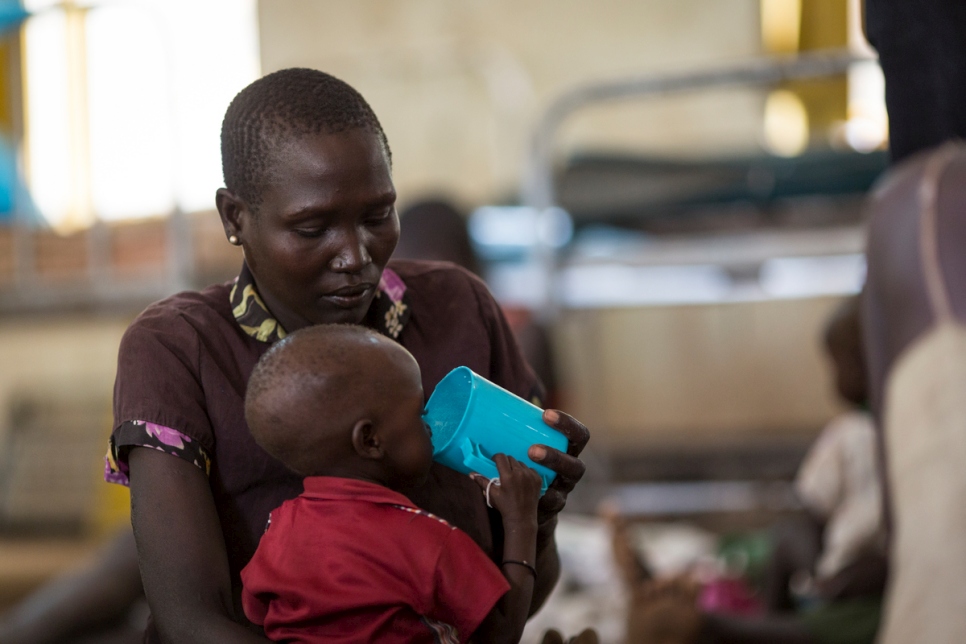2030 Agenda for Sustainable Development
In a world increasingly shaped by climate change, poverty and conflict, the SDGs cannot be achieved without taking into account the rights and needs of refugees, internally displaced and stateless people.
In the lead-up to the 2030 Agenda, we worked to ensure that all persons of concern to UNHCR were included in its guiding vision by engaging with a range of other humanitarian agencies – mainly OCHA, IOM, UNICEF and UNESCO – as well as the Secretary-General’s Special Rapporteur on the Human Rights of Internally Displaced Persons, the Special Representative on Migrants and the Special Representative of the Secretary General on Migration and Development.
The principles that underpin the 2030 Agenda, notably leaving no one behind and ensuring human rights for all, provide a powerful basis for inclusion. The Declaration implicitly and explicity notes the need to include refugees:
- Paragraph 4 pledges “that no one will be left behind and that Goals and targets will be met for all nations and peoples and all segments of society.”
- Paragraph 23 states that “Those whose needs are reflected in the Agenda include all children, youth, persons with disabilities (of whom more than 80% live in poverty), people living with HIV/AIDS, older persons, indigenous peoples, refugees and internally displaced persons and migrants. We resolve to take further effective measures and actions, in conformity with international law, to remove obstacles and constraints, strengthen support and meet the special needs of people living in areas affected by complex humanitarian emergencies and in areas affected by terrorism.”
As outlined in our Strategic Directions 2017-2021, UNHCR will:
- Build on the commitment of the 2030 Agenda for Sustainable Development to leave no-one behind, and on the Sustainable Development Goals to promote the inclusion of refugees, the internally displaced and stateless people in National Development Frameworks.”
- Engage strongly with States, host communities, civil society and key national service providers to promote the inclusion of refugees, internally displaced and stateless people in mainstream national systems, including health and education, pending durable solutions to their displacement.”
UNHCR continues to advocate for accelerated and inclusive implementation of the SDGs. We are also strengthening and diversifying partnerships to bring together a broad range of actors – including the private sector – to innovate, create and mobilize solutions for forced displacement and statelessness.
Learn more about our approach and work on the SDGs:

